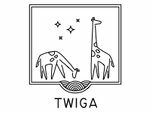Effective Transnational Catchment Management

Catchment management is usually the responsibility of a governmental organization such as a Catchment Management Agency in South Africa or a Water Board in the Netherlands. However, catchment boundaries are not always situated within a political region. For example, the Rhine catchment is shared by the Netherlands, Germany and Switzerland. But also smaller river systems […]
WEATHER FORECASTING FOR AGRICULTURE IN AFRICA, THE BUSINESS CASE?

Weather information is a priority for farmers, whether they use irrigation or not. It should be localized, timely, and accurate enough, to make the information relevant at the field level. In Africa, this is often not the case, although there are information providers, such as aWhere (https://www.awhere.com/) and Weather Impact (https://www.weatherimpact.com/) that are active on […]
Farmers see where the satellite is blind

Satellite data for West Africa is still struggling with local climate and farming practices. Despite the increasing data frequency, the rainy season in West Africa features such a dense cloud cover that many satellites cannot provide cloud free images. In addition, many farmers practice intercropping which means that a single plot can be used to […]
User requirements for sustainable South African Water Management

What are the information needs and requirements of operational water managers in South Africa? Which new services and applications can help them with their biggest challenge: water scarcity? During the first half of 2019, colleagues from HydroLogic have traveledmultiple times to South Africa to acquire information and investigate the needs and challenges of the South […]
Transforming Agricultural Insurance in Africa Using Climate Data.

@iLabAfrica, a research and innovation center at Strathmore University held a breakfast forum on May 2nd,2019 themed: Transforming Agricultural Insurance in Africa using Climate Data at the Strathmore Business School. The forum was a platform to discuss and provide insights on effective implementation of products that are key in reducing farmers’ vulnerability to weather extremes. […]
Narok County of Kenya set to be a global role model in improved real-time weather observations and climate information dissemination and use (Part Two)

From the stakeholders’ workshop, the TWIGA team was involved in improving their capacity to implement the project. On this, the second and third day of the workshop was focused on training of the TWIGA team on Business Model Canvas (BMC) development. The business model was based on the outcome of the stakeholder’s workshop on the […]
Ghana’s agriculture sector: challenges and opportunities

Agriculture is a crucial component of Ghana’s economy which contributes around 20% to its Gross Domestic Product, provides employment for almost half its workforce, and supplies two-thirds of the raw materials used in its manufacturing sector (excluding oil). Cocoa, the country’s major cash crop and principle agricultural export, accounts for between 20-25% of Ghana’s total […]
Narok County of Kenya set to be a global role model in improved real-time weather observations and climate information dissemination and use (Part One).

The TWIGA project in Kenya is championed by the Kenya Meteorological Department comprising a multidisciplinary team of 5 members with the recent addition of a new member who will be pursuing a Ph.D. course within the project. The TWIGA project has started in Narok County in Kenya, located about 145 km from Nairobi, the capital […]
Added-value of Flying Sensors: irrigation advice to pineapple farmers

In November 2018, just after the TWIGA days in Kumasi, Ghana, FutureWater, together with partners Hiview and Farmerline, conducted a pilot study using flying sensors (drones) to enhance irrigation water productivity and yields of pineapple farmers. Pineapple is a key economic resource in Ghana, but pineapple yields generally remain low. Yield losses occur due to […]

